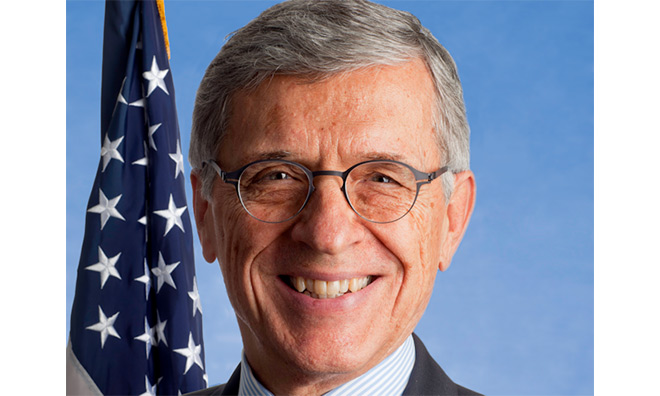Verizon's plan to throttle LTE speeds draws scrutiny from FCC chairman
Verizon is planning to restrict LTE data speeds of customers still holding on to unlimited data plans, but the program has "deeply troubled" FCC Chairman Thomas Wheeler, who sent a letter to the carrier asking for clarification on the new policy.
As part of its "network optimization" initiative, Verizon plans to slow down 4G LTE data speeds for subscribers with unlimited data plans when the network is particularly congested.
In response, U.S. Federal Communications Commission Chairman Wheeler sent a note to Verizon CEO Daniel Mead on Wednesday, voicing concern over the change and requesting that a few questions regarding the policy be answered. A copy of the letter was obtained by GigaOm.
"'Reasonable network management' concerns the technical management of your network; it is not a loophole designed to enhance your revenue streams," Wheeler wrote. "It is disturbing to me that Verizon Wireless would base its 'network management' on distinctions among its customers' data plans, rather than on network architecture or technology."
Specifically, the carrier plans to start limiting customers who "fall within the top 5 percent of data users on our network, have fulfilled their minimum contractual commitment, and are on unlimited plans using a 4G LTE device." Under the terms, slated to take effect in October, these users may see slower data speeds when performing high bandwidth operations like high-definition video or gaming apps.
The practice, known as throttling, has been a major concern for both consumers with grandfathered-in unlimited data plans and carriers that can apparently no longer deliver on their promises.
"I know of no past commission statement that would treat as 'reasonable network management' a decision to slow traffic to a user who has paid, after all, for 'unlimited' service," Wheeler wrote.
Wheeler also asks three questions of Mead:
- 1. What is your rationale for treating customers differently based on the type of data plan to which they subscribe, rather than network architecture or technological factors? In particular, please explain your statement that, "If you're on an unlimited data plan and are concerned that you are in the top 5% of data users, you can switch to a usage-based data plan as customers on usage-based plans are not impacted."
- 2. Why is Verizon Wireless extending speed reductions from its 3G network to its much more efficient 4G LTE network?
- 3. How does Verizon Wireless justify this policy consistent with its continuing obligations under the 700 MHz C Block open platform rules, under which Verizon Wireless may not deny, limit, or restrict the ability of end users to download and utilize applications of their choosing on the C Block networks; how can this conduct be justified under the Commission's 2010 Open Internet rules, including the transparency rule that remains in effect?
Before the smartphone — and subsequently the cellular-connected tablet — caught on, providers offered unlimited data plans alongside the devices as a way to spur sales in an unknown market. With popular products like the iPhone, smartphone use exploded, causing cellular data consumption rates to rapidly increase. Carriers were left with an infrastructure not equipped to deal with the unexpectedly high data demands, prompting the use of stop-gap practices like throttling.
Unlimited data contracts were quickly quashed, but subscribers already on the most-expensive plans were allowed to keep them as long as monthly payments continued. The rollout of speedier next-generation cellular technology like 4G LTE effected even faster data consumption rates.
For its part, Verizon claims throttling will help give the other 95 percent of its customers a consistent usage experience, saying the policy affects only a small number of people.
"What we announced last week was a highly targeted and very limited network optimization effort, only targeting cell sites experiencing high demand," Verizon said in a statement provided to Re/Code. "The purpose is to ensure there is capacity for everyone in those limited circumstances, and that high users don't limit capacity for others."
 Mikey Campbell
Mikey Campbell











 Mike Wuerthele
Mike Wuerthele
 Malcolm Owen
Malcolm Owen
 Chip Loder
Chip Loder

 William Gallagher
William Gallagher
 Christine McKee
Christine McKee
 Michael Stroup
Michael Stroup
 William Gallagher and Mike Wuerthele
William Gallagher and Mike Wuerthele






